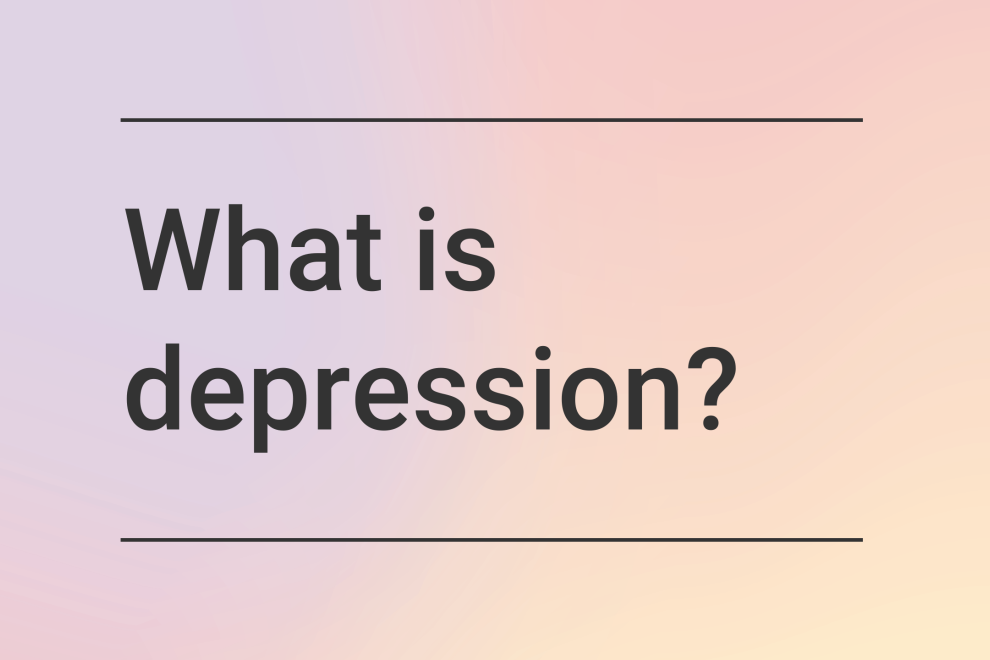what is Depression, Mental health. Symptoms
Depression is a mental health disorder characterized by feelings of sadness, hopelessness, and a loss of interest in activities that were previously enjoyable. It is a common mental health condition that affects millions of people worldwide.

Symptoms of depression can vary but may include:
- Persistent feelings of sadness or hopelessness
- Loss of interest in activities once enjoyed
- Difficulty sleeping or sleeping too much
- Fatigue or loss of energy
- Feelings of worthlessness or guilt
- Difficulty concentrating or making decisions
- Appetite changes, including weight loss or gain
- Thoughts of suicide or self-harm
There are several different types of mental health problems and disorders, of which depression is one. Other mental health problems may include anxiety disorders, bipolar disorder, schizophrenia, and personality disorders.

Mental disorders are conditions that affect a person’s thoughts, feelings, and behaviors. They can impact a person’s ability to function in their daily life and can range from mild to severe. Mental disorders can be caused by a variety of factors, including genetics, environmental factors, and life experiences.
It’s important to seek professional help if you are experiencing symptoms of depression or any other mental health disorder. Treatment options may include therapy, medication, lifestyle changes, or a combination of these.
How to manage depression
Managing depression can be challenging, but there are several steps you can take to help alleviate symptoms and improve your overall well-being. Here are some tips:
Seek professional help: Consult a mental health professional such as a therapist or psychiatrist who can help you develop a treatment plan that is tailored to your specific needs.
Stay connected with loved ones: Social support is essential for managing depression. Reach out to friends and family members, or consider joining a support group.
Practice self-care: Taking care of yourself is essential for managing depression. This includes getting enough sleep, eating a balanced diet, and exercising regularly.
Challenge negative thoughts: Depression can cause negative thinking patterns. Learn to recognize and challenge negative thoughts with positive affirmations.
Engage in activities you enjoy: Engage in activities that bring you pleasure, such as hobbies or exercise.
Consider medication: Antidepressants can be helpful for managing depression. Talk to your doctor to see if medication is an option for you.
Remember, managing depression is a journey, and it may take time to find the right combination of treatments that work for you. Be patient and persistent, and reach out for help when you need it.
Follows Us for More Updates
Like Us on Facebook Page : Click Here
Like Us on Instagram : Click Here





